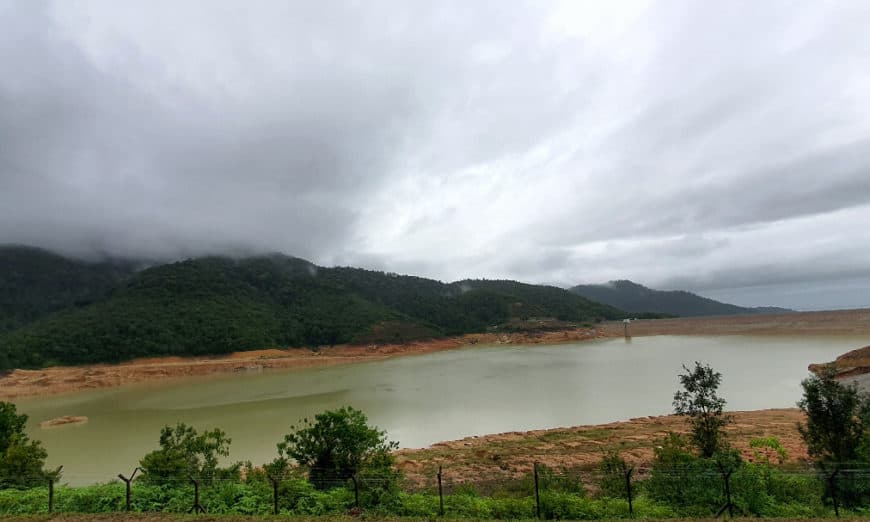AS water becomes an increasingly precious commodity with each passing day, the proposal by the Penang Water Supply Corporation (PBAPP) to desalinate seawater in Penang to meet future needs beyond 2030 must be looked into seriously.
Penang draws more than 80% of its water from its side of the Muda River but as relationship with Kedah, from where the Muda River originates, has soured in recent times, Penang has turned to Perak for the purchase of raw water from Sungai Perak.
However, Perak, in its latest move, has decided against selling water to Penang under the Sungai Perak Raw Water Transfer Scheme (SPRWTS), citing that the state needs the water for itself with its population expected to reach three million by 2050.
PBAPP chief executive officer Datuk Jaseni Maidinsa said the commissioning of desalination plants in Penang might be implemented in phases from 2030.
With a population of about 1.8 million and growing, along with the operations of thousands of businesses, he said to ensure water security for Penang, PBAPP was also implementing the Raw Water Contingency Plan 2030 (RWCP 2030) projects.
These include five water supply engineering projects that will yield 569 MLD, thereby increasing the maximum design capacity from the current 1, 599 MLD to 2,168 MLD. Penang’s water consumption last year was 860 MLD.
Jaseni said based on a study, Penang’s water demand may increase by 78.1% (672 MLD) and reach 1,532 MLD by 2030.
In an interview with Buletin Mutiara today, Prof Chan Ngai Weng (a professor in Water Resources Management in Universiti Sains Malaysia, and also the president of Water Watch Penang), Penang Real Estate and Housing Developers Association (Rehda) chairman Tan Hun Beng and Malaysian Semiconductor Industry Association president Datuk Seri Wong Siew Hai said they all totally support PBAPP’s move towards desalination.
Below are their views.
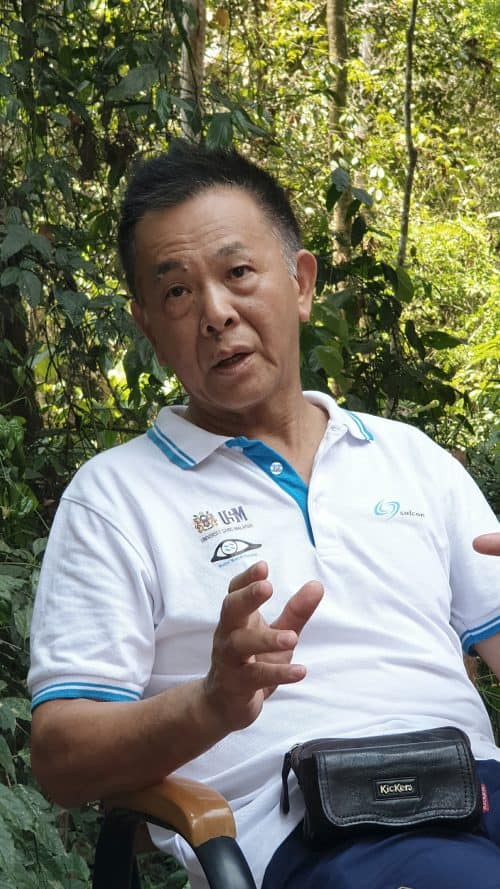
Prof Chan Ngai Weng (professor in Water Resources Management in Universiti Sains Malaysia and also the president of Water Watch Penang):
“PBAPP’s proposal is to ensure Penang has sufficient water. Without enough water, everything stops – life, economy, industry, tourism, no food, etc.
“PBAPP has no choice but to resort to desalination. Even with all the planned enhancement of five projects under RWCP 2030, the total is only 569 MLD, which is 291 MLD short of last year’s total water demand of 860 MLD in the state.
“I totally support the move towards desalination as this will make Penang less dependent on others for water.
“Whether or not Perak, Kedah or the federal government offer us raw water, Penang needs to move fast on securing desalinated water. No more delays. To be safe, we need to charter our own destiny, not relying or depending on others!
“We need to mobilise all water consumers to be careful when using water. Consumers must use water wisely.
“The Penang state government must tell Penangites to save water for their state and for their future. In fact, Penangites should save water so that we are not “bullied” by other states! If all water consumers (domestic and trade) save water, we would reduce water demands significantly and this would reduce pressure on our water supply and produce a bigger reserve margin. It is easily possible for consumers to reduce between 10 and 20% of water use.
“Singapore’s desalination technology is also world class and they can be a model for Penang. Not only is their water service provider PUB world class, their water consumers are also highly sensitized.
“PBAPP must increase water supply by desalination and all other plans being put in place. At the same time, water consumers must play their part in saving water and using it wisely.
“Big water consumers like hotels and factories need to put in water recycling plants, rechannel aircon water and treat wastewater for non-potable reuse, instal rain harvesting plants, change all fittings to water saving devices, educate their employees to use water wisely, and make saving water a lifestyle habit. Merely increasing water supply is useless if consumers keep wasting water! Records show that water demands increase much faster than supply!
“Currently, factories, hospitals, commercial businesses, schools, and households do not instal water recycling plants, rainfall harvesting system and water saving devices because water tariff is too cheap in Penang.
“It is economically not attractive to instal these expensive plants. But businesses should think about the future and move towards being green and sustainable. Getting more profits now is useless if you become irrelevant in the future!
“To prepare for droughts, PBAPP needs to increase water tariffs to discourage overuse of water (both trafe and domestic tariffs need reviews). Consumers need to instal rainfall harvesting system as an alternative water source.
“The world, including Malaysia and Penang, face huge uncertainties now. Every country and state is fighting for themselves. No one cares about collaboration, much less helping others out.
“As such, Penang must not sit back and wait for others to take action or help it. Penang must take pro-active action and do whatever it can to survive. We must expedite desalination as soon as possible.”
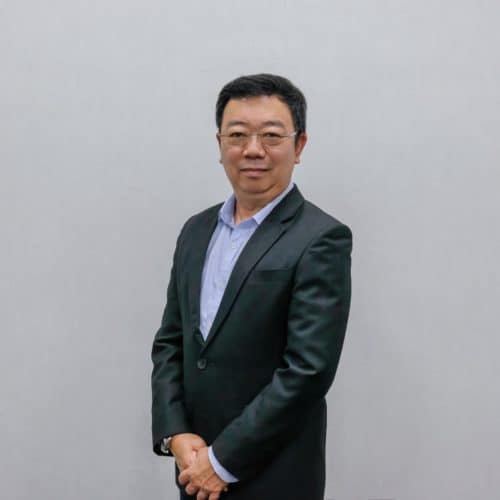
Tan Hun Beng (Penang Real Estate and Housing Developers Association (Rehda) chairman):
“I would say that PBAPP has been one of the best waterworks in the region and has received many accolades for its work. Since the time of the late Datuk Kam U-Tee, PBAPP has been a proactive and forward-looking utility corporation.
“The planning of the water consumption not only looking at domestic but also industrial need is crucial to the state especially we are short of land for catchment.
“The proposal from PBAPP is inevitable because we have exhausted all the possibilities of getting raw water from neighbouring states.
“There are many ways of getting treated water and desalination process of seawater seems to be the best option.
“Other than desalination of seawater, there are other ways of getting potable water, such as from storm sewer (meaning collection of rainwater through storm sewer system), reverse osmosis (RO) and extracting of ground water.
“However, I believe that desalination of seawater is one of the effective ways of getting potable water and that is why PBAPP is embarking on it.
“Whether or not the state should implement the desalination process from 2030 in stages or earlier depends very much on the need from both domestic and industrial.
“The state should have the knowledge of how many new factories that are going to open within this period and how many new jobs to be created. These factors will definitely have a dynamic impact on the movement of the population and eventually translated into the needs and consumption of water supply.
“As such, it is crucial to plan ahead with the needs in accordance to the development and implement it in stages. That will alleviate the cash flow of the state and at the same time achieve its objective to cater for the future needs without any hiccup or interruptions.
“PBAPP has been trying very hard to educate the public to conserve the water and as at to date, there has been not much improvement.
“Water comes too easy to every household and the public has been taken it for granted that Penang is always blessed with plenty of water.
“Since the implementation of water conservation surcharge to the households who have high domestic consumption, the public has started to feel the pain and I believe slowly the awareness will spread to everyone.
“Perhaps PBAPP could consider setting up an inspectorate to monitor the waste of water and imposing fines for such irresponsible act. Often than not, we see unattended running water going down the drain when people are washing their cars, hawkers washing their dishes etc. These culprits should be taught a lesson for their selfish acts.
“Water rationing should be the last option because we should not lead to that stage if all preventive measures are taken with agility.
“We should look at long term and short-term preventive measures. For long-term, the best way is to educate the public on the importance of water to mankind and what will be the serious consequences if we are running out of supply.
“Educating the young in the school is another way of long-term measures. We should tell the school children the responsibilities of conserving the natural resources like water.
“No one can survive without water for three days, and this is the matter of life and death. Besides, we should also impose strict regulations in curbing the wastage.
“Other than that, the state should carry out water rationing drills to educate the public what they will experience if one day there is really a water rationing happening here.
“As for short-term measures, I would say that stern action such as fines and imposing higher surcharges for higher consumption.
“Besides conserving the water consumption, PBAPP should continue to rejuvenate the water reticulation to prevent wastage though leakages due to broken water mains because of aging.
“Periodical checks should be carried out for all water reticulation system in the entire state to ensure that there are no underground leakages that usually contributed to the unaccounted for wastages.”
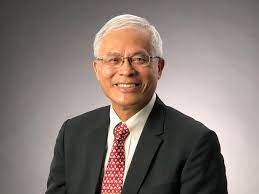
Datuk Seri Wong Siew Hai (president of the Malaysian Semiconductor Industry Association)
“First of all, I would like to applaud PBAPP for planning so far ahead. The five projects that are being planned by PBAPP are very important.
“As Penang continues to attract more industries, water usage will definitely be higher.
“Penang, however, does not have that kind of water to cater to frontend assembly plants like in Kulim. So, in order to draw this high value investments, we need to enhance our ecosystem.
“I agree that we must make sure that there are no water leakages. Even in my neighbourhood, you can see water leakages at times.
“Of course, we need to educate the public that water is precious and we need to conserve them if we do not want water rationing.
“All in all, I feel the contingency plan (for desalination process) is very important. We can turn it on when we need them.”
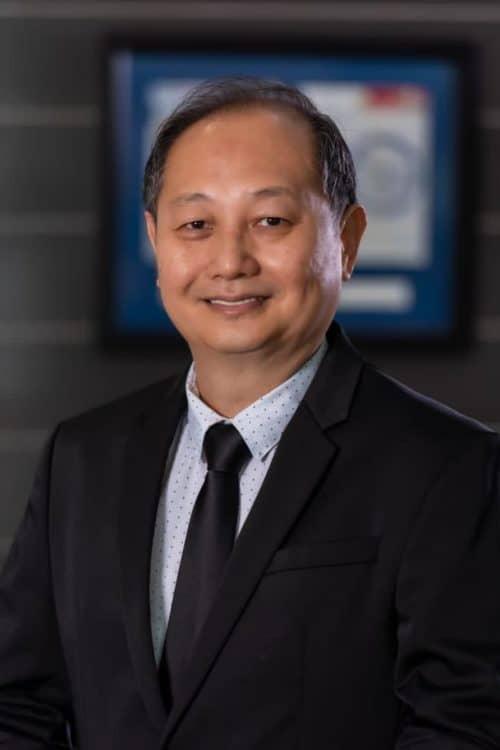
Datuk Lee Teong Li (chairman of Federation of Malaysian Manufacturers Penang)
“For PBAPP to go for desalination is a wise decision in the long run; continue building dams and reservoirs can also be costly and considering the environment side of it. Even if we build dams and reservoirs, we still need to go for water treatment but of course it is a different method and scale.
“For desalination, may be the state can consider the Balik Pulau seaside which may be cleaner. Also, there is a reservoir nearby and may be it can be connected.
“I think the desalination process should be implemented earlier instead of waiting until 2030. A lot of work needs to be done before the desalination plant can be built. All the planning and studies, assessments can take a very long time.
“Global warming and climate changes, we will never know how they can affect our water resources. With the rapid development and growing investment, Penang population will grow, and it will increase the water consumption. So, prior planning is always better.
“Desalination plants operate in more than 120 countries in the world, including Saudi Arabia, Oman, Arab Emirates, Spain, Cyprus, Portugal, Greece, Italy, India, China, Japan, Australia, Singapore etc. The nearest we can benchmark is Singapore, and they have two plants.
“I would recommend Singapore as basically both countries have the same geographical environment plus the seawater is quite similar.”
Story by K.H. Ong
Pix courtesy of interviewees

